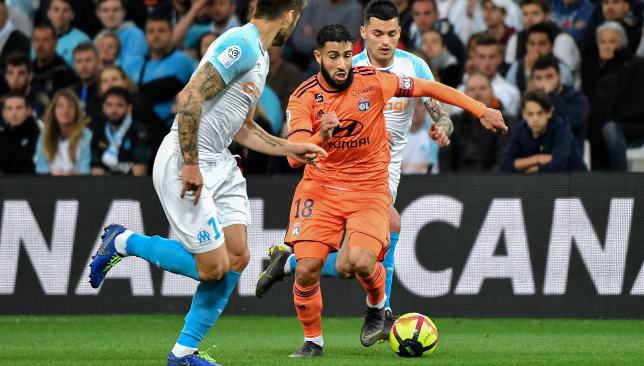
Football’s transfer market often moves in mysterious ways.
From wondering why your favourite club has splashed out on a target they, seemingly, don’t need, to pulling your hair out as an obvious signing to improve their fortunes remains ignored. For fans, the summer months can be a confusing – and aggravating – time.
In Sport360’s ‘Transfer Market Mystery’ series, we attempt to delve into some of the glaring issues and work out what is going on.
Our latest case under the microscope – with help from WhoScored.com statistics – is whether Europe’s grandees, including last year’s strongest suitors Liverpool, were right to give Real Betis a free pass at their bargain move for Lyon and France playmaker Nabil Fekir:
THE SITUATION
Fekir appeared poised to be a coveted name throughout pre-season.
The 26-year-old had only one year left to run on his contract at Les Gones, for whom he’d notched 69 goals and 46 assists in 193 run-outs. This, ostensibly tempting, situation meant a drastic cut in valuation from the €60 million deal Jurgen Klopp’s men had walked away from at the last moment in June 2018, reportedly because of lingering fears about September 2015’s serious knee injury.
An expected stampede for his signature, however, turned into timid footsteps. France Football tentatively linked Fekir with AC Milan last month, while Gazzetta dello Sport proposed Napoli as enticing late admirers once Betis showed their hand.
The outfit who finished 10th in the 2018/19 La Liga and could not even offer Europa League football, somehow, won the day. A package worth up to €29.8 million contained a 20 per cent sell-on clause and the concurrent signature of unheralded brother, Yassin.
WHY HE SHOULD HAVE BEEN PURSUED
Betis’ cheeky announcement of Fekir’s arrival spoke volumes about the chatter that stains his reputation.
“In perfect medical condition,” the Seville-based side tweeted.
Fears about Fekir’s longevity, indeed, do not necessarily hold up to inspection.
For the third time from six seasons in Lyon’s first team, he got up to 39 appearances in all competitions during 2018/19. This figure was stymied by a late return from pre-season because of World Cup 2018 duties.
An exhibition of his enduring ability came at Manchester City in the Champions League’s group stage. Fekir teed up Maxwel Cornet’s opener with a searching cross and then robbed Fernandinho prior to lashing the second into the bottom corner during a memorable 2-1 triumph.
Value is also a notable element of the transfer. Betis’ initial outlay was just €19.8m, plus a nominal fee for the sibling.
In La Liga alone, this guaranteed amount is similar to the one paid by Atletico Madrid to Porto for 30-year-old, one-cap Brazil centre-back Felipe. Barcelona agreed a €26m package with Valencia for back-up goalkeeper Neto, with Netherlands international Jasper Cillessen going the opposite way for €35m.
Fekir, in comparison, is a World Cup winner and regular source of goals for Lyon.
In perfect medical condition! 🏥💉✅ pic.twitter.com/tnPBhhAul2
— Real Betis Balompié (@RealBetis_en) July 22, 2019
If the attacking midfielder meets all the clauses in his contract, he’ll become the second-most-expensive buy in Betis’ 111-year history. He will, however, be cheap at the price.
WHY HE SHOULDN’T HAVE BEEN PURSUED
A downturn in 2018/19 was easy to detect.
In the prior season, Liverpool and Real Madrid’s interest was piqued by a return of 23 goals and eight assists in 40 club – often sublime – performances. This pair were nowhere to be seen when a far-inferior tally of 12 goals and nine assists in 39 games followed.
In 2017/18, Fekir was the joint-fifth highest scorer (18) and joint-sixth-highest assist maker (eight). An average of three dribbles per game was the fifth best and only Neymar was fouled more often per match (5.2/3.5).
These numbers made much less impressive reading last season; 18 players scored more times than his nine, he was the joint-10th-highest assist maker, his dribbles per game almost halved to 1.6 and he was fouled only 2.2 times.
Another telling statistic about a diminished role is that Fekir’s five substitute appearances in Ligue 1 was also the most since 2013/14’s debut campaign.
Then there is the nagging injury issue. A range of complaints, mostly related to his ankles, meant he stumbled out of the starting blocks last term.
He’s also twice missed approximately a month of action in 2016/17 and 2017/18 with knee issues. This followed the cruel seven-month injury lay-off in 2015/16 after his cruciate ligament rupture.
Fekir’s talent is unquestioned. How frequently he will be able to show it is feverishly debated.
CONCLUSION
It appears that Europe’s apex predators were not prepared to gamble on the suspect fitness and diminishing returns exhibited by Fekir.
Not even a knockdown valuation could convince Klopp to come back to the negotiating table and there was no place in Real’s extensive summer rebuild under compatriot Zinedine Zidane. They’d turned away from the (once?) exceptional prospect who caused a riot in November 2017’s 5-0 derby mauling of St-Etienne.
At 26, Fekir is still young enough to reach the elite. Betis will be banking on him making the most of the platform they’ve offered away from his Lyon incubator.